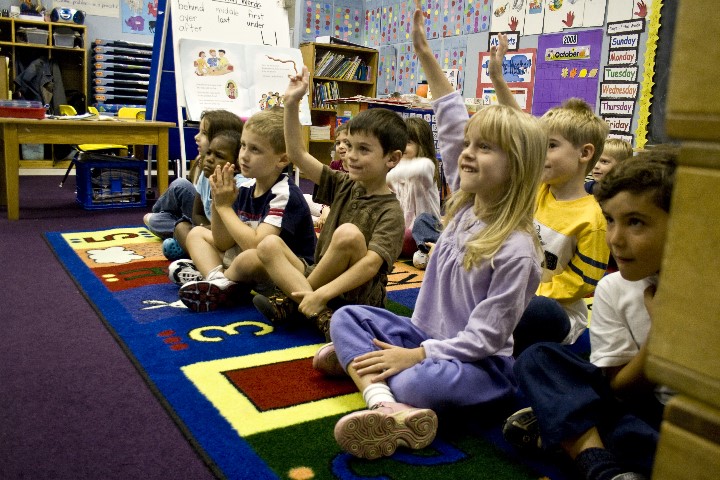Students at Benchmark School in Phoenix seem to stand out, in a good way.


Students at Benchmark School in Phoenix seem to stand out, in a good way.
“Everyone can tell a Benchmark student,” Carole Challoner, one of the public charter school’s founders, told the American Thinker. “Our students are kind, they are respectful, they are caring, and they love their country.”
Challoner started the school with fellow teacher Barbara Darroch, investing their own money to buy the land and buildings, to develop Benchmark with a clear vision of what they wanted to do differently than other schools. Both Challoner and Darroch grew up overseas, with Challoner’s father in the U.S. Air Force and Darroch’s in the oil business, and their childhood experiences shaped how they approach the classroom.
Researchers at the Institute for Advanced Studies in Culture found that the willingness to “be different” is an important feature of creating a “thick” moral culture in a school. In The Content of Their Character they wrote, “All of the charter schools in this sample saw themselves as different from the local public schools in culture and a focus on academic achievement…. To this end, they deliberately constructed their notions of the ‘good person’ as countercultural to their perception of a public school’s.” This willingness to embrace a countercultural stance served to enhance the moral ethos of the school.
The Institute for Advanced Studies’ latest book, The Content of Their Character, provides findings of the Institute’s research into ten sectors of K-12 high school across America regarding moral and citizenship formation of high school students. The sectors studied were as follows: urban public high schools, rural public high schools, charters, evangelical schools, Catholic schools, Jewish and Muslim schools, prestigious independent schools, alternative pedagogy schools and homeschooling.
“We know how lucky our students are to have been born in this wonderful country, and it is our responsibility to make sure they never forget that,” Challoner said.
Throughout the school year, various school events focus on inspiring students with opportunities for gratitude, service and patriotism – experiences that reinforce daily classroom lessons about the meaning of the Pledge of Allegiance, protecting the Constitution, the country’s founding fathers, and how citizenship and character revolve around helping others.
Students take turns leading the school in the daily Pledge, collect supplies for deployed military troops, honor veterans with essays and patriotic performances, and visit the National Memorial Cemetery to lay wreaths on graves without them.
Classrooms adopt military families during Christmas to help with presents and food, students compete in essay contests for Veterans Day and Memorial Day, and participate in several special events throughout the year. One event honors those who died in the September 11, 2001 terrorist attacks by hoisting two flags in remembrance. The flags are given to two students at the end of the year that exemplify good character and citizenship.
In another special event, the school hosts a naturalization ceremony for new citizens, who take an Oath of Allegiance and speak with students about why they wanted to become Americans. The yearly tradition has featured folks from Venezuela, Bosnia, and African countries, according to the American Thinker.
The intense focus on character and citizenship has led to tremendous academic success, Challoner said, with scores twice the state average in some subjects.
Teachers and principals wanting to strengthen moral and citizenship formation in their students can find information and strategies at the UK’s Jubilee Centre.
For further reading on CultureFeed